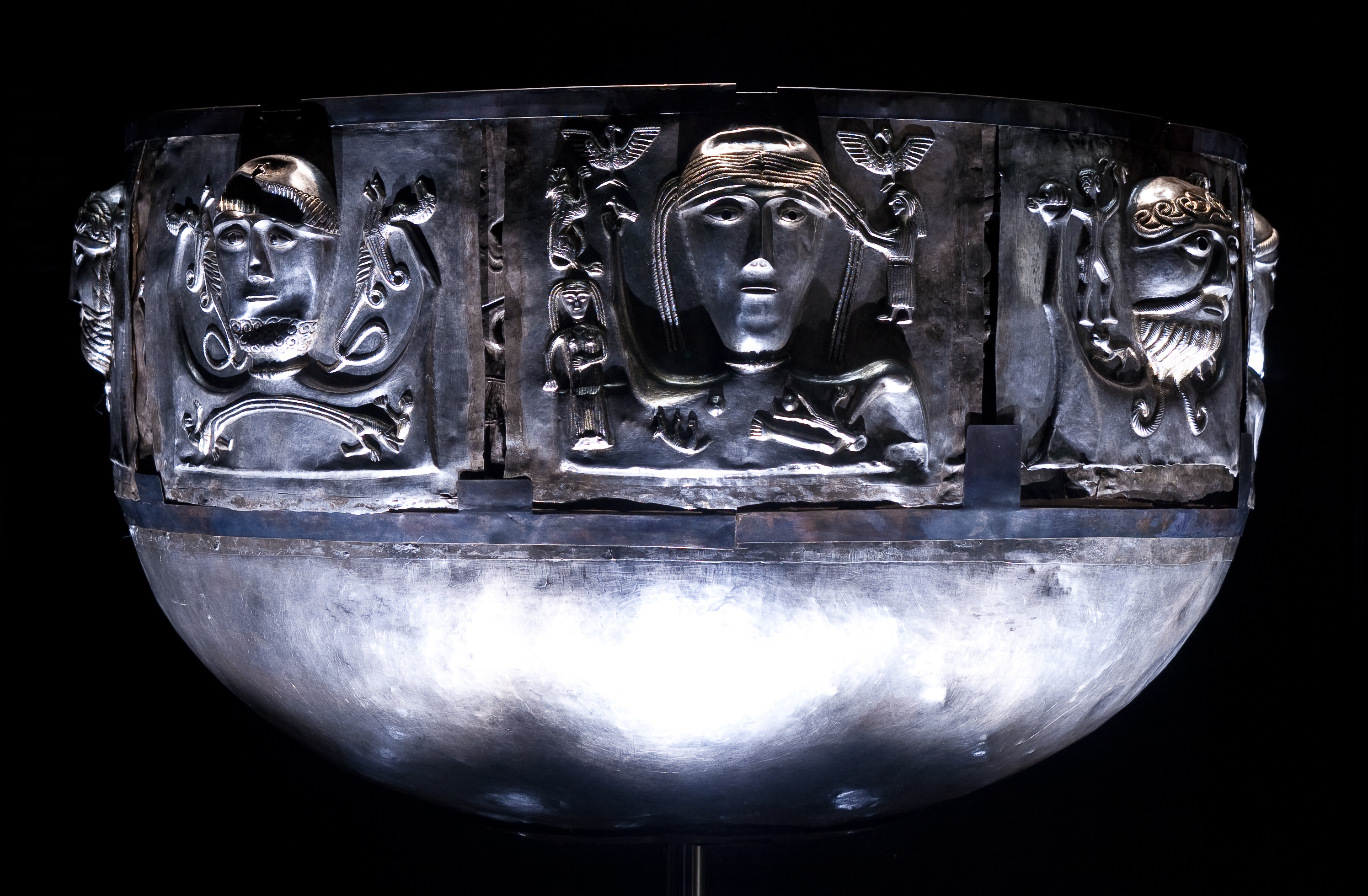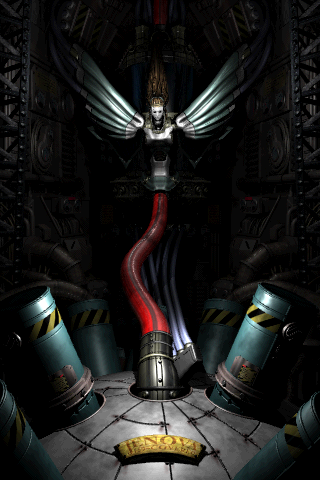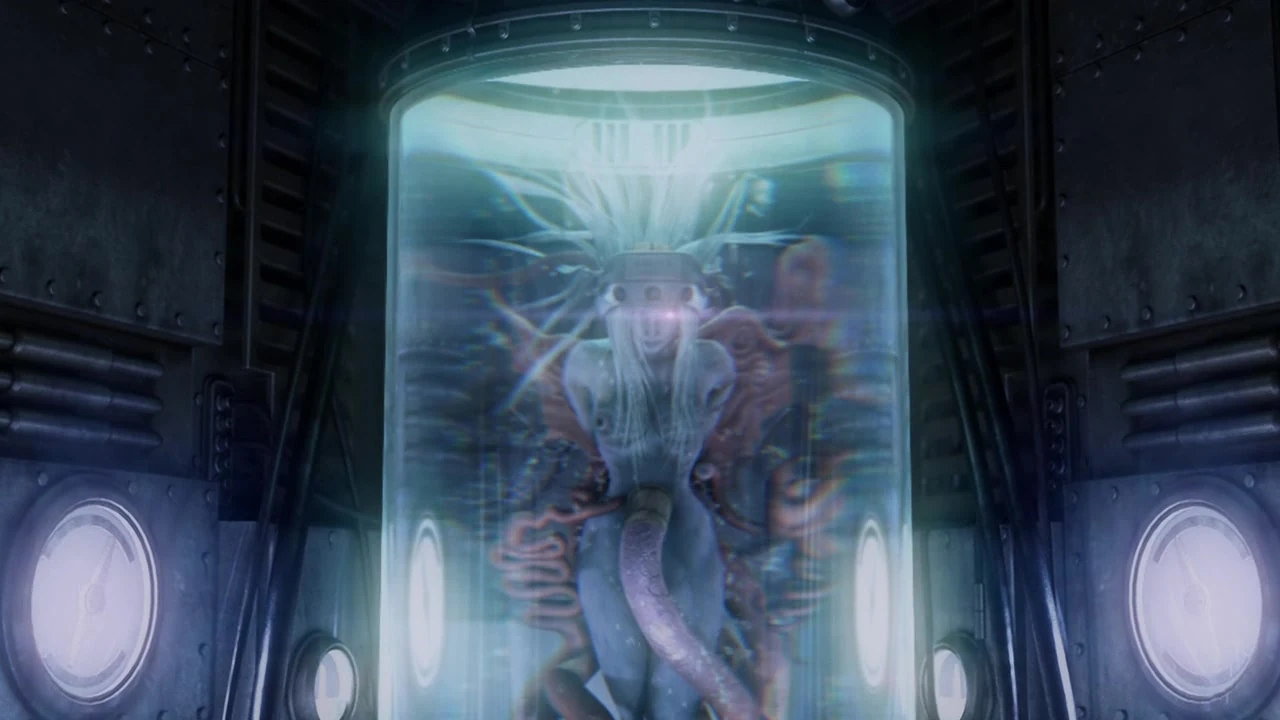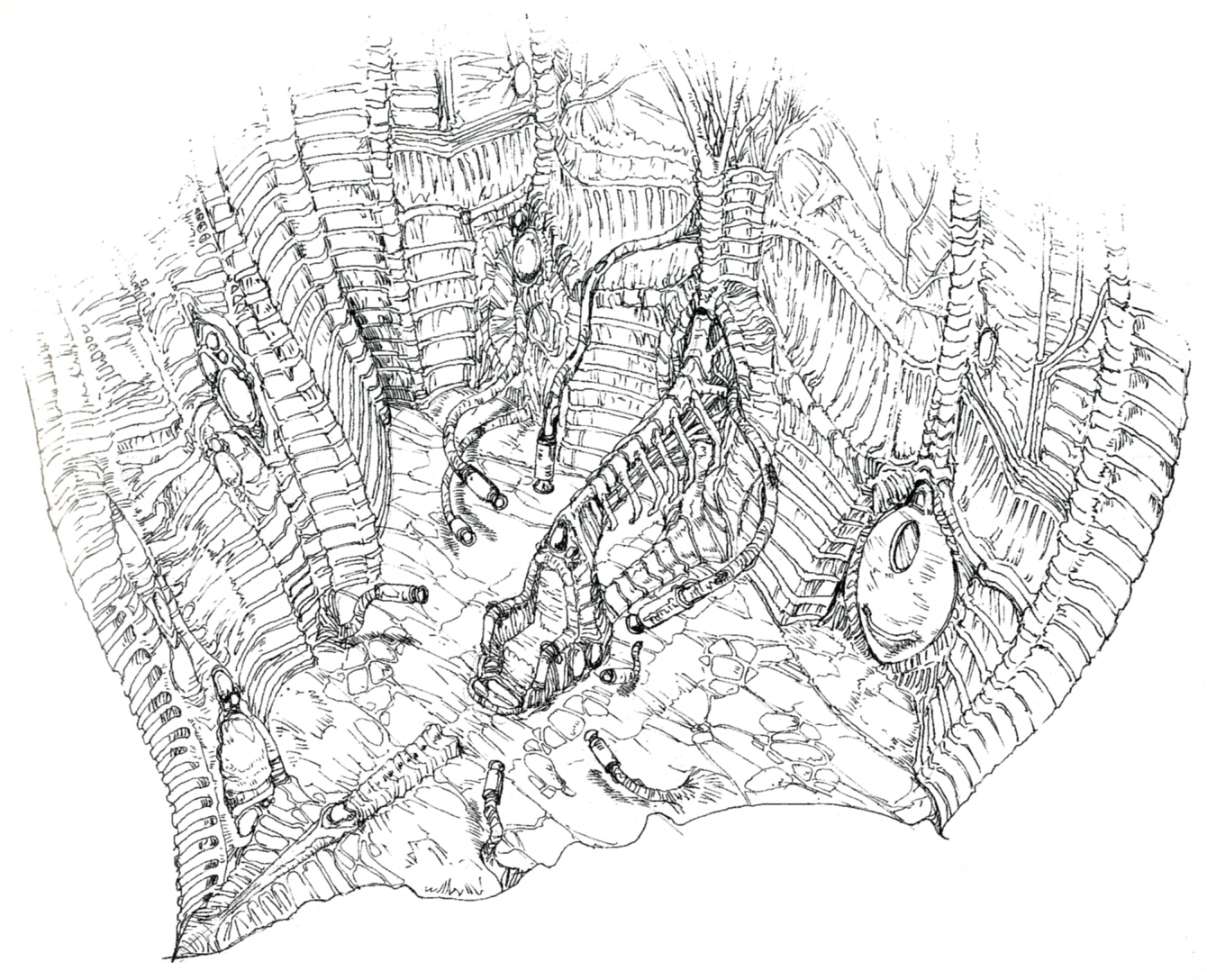The statement that Jenova is not composed in part of spiritual energy could be challenged.The main difference I can see is that with the Lifestream it appears to only be spiritual energy which rejoins the Lifestream rapids under the Planet’s crust and then is later recycled as a new lifeform with a new consciousness, etc (and thus the Lifestream as FFVII’s afterlife relied on reincarnation rather than an eternal existence, but the spirit would live on in new life). Whereas with Jenova the energy never transcended into a spiritual form at all and remained corporeal, like a decaying, yet changeable, alien zombie
At the end of Final Fantasy VII during Cloud's last hallucination, the entity that resembles Sephiroth (an entity possibly contaminated by Jenova) breaks down into small red lights that merge with the green lights of Lifestream. This could be an indication that Jenova also has a spritual existence. Now in the video clip that I present above it seems that the entities are broken down into different colors without being declared as foreign to Lifestream. Maybe these different colors are just there for the purpose of the demonstration but perhaps also that they represent different levels of consicence within the Lifestream.
Last edited:



 . Especially the fact that an artificial intelligence uses the real past (memories) of a character (Armitage) to serve as the basis for a modified personality who will be implanted in this same character. This construction lasts as long as it takes but after a while the character goes crazy and the AI gets rid of him. This manipulated character is the one who give his mission to the hero of the book (Case). In short, a theme of manipulated memories orchestrated by a distant puppeteer (in order to free itself).
. Especially the fact that an artificial intelligence uses the real past (memories) of a character (Armitage) to serve as the basis for a modified personality who will be implanted in this same character. This construction lasts as long as it takes but after a while the character goes crazy and the AI gets rid of him. This manipulated character is the one who give his mission to the hero of the book (Case). In short, a theme of manipulated memories orchestrated by a distant puppeteer (in order to free itself).


 which I claim to be.
which I claim to be.




